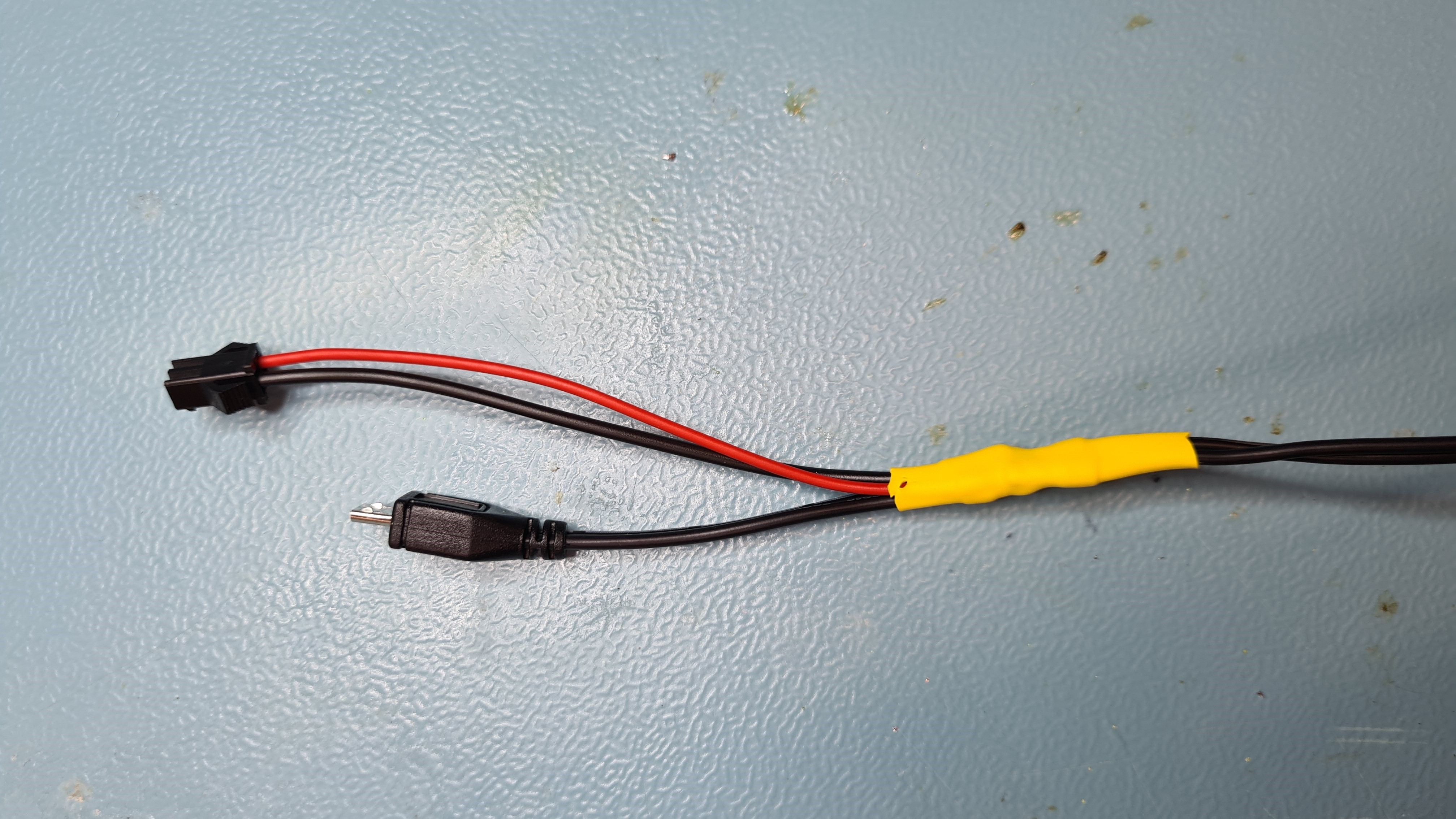Motor controller (Sangaboard)
The stage can be powered by a Raspberry Pi and a motor controller.
Parts
- 1 Raspberry Pi power supply
- 20 cm of red 4A instrument wire
- 20 cm of black 4A instrument wire
- 6 cm of 4.8mm heat shrink
- 6 cm of 6.4mm heat shrink
- Some solder
Tools
Method
The Sangaboard
These instructions show the different ways of controlling the motors. The base currently works best with the Sangaboard v2.
Powering the motors
Do not power the motors from the pins on the Raspberry Pi. Instead split the Raspberry Pi power supply cable.
Cut the Raspberry Pi power supply cable approximately 20cm from the USB plug end using wire cutters.
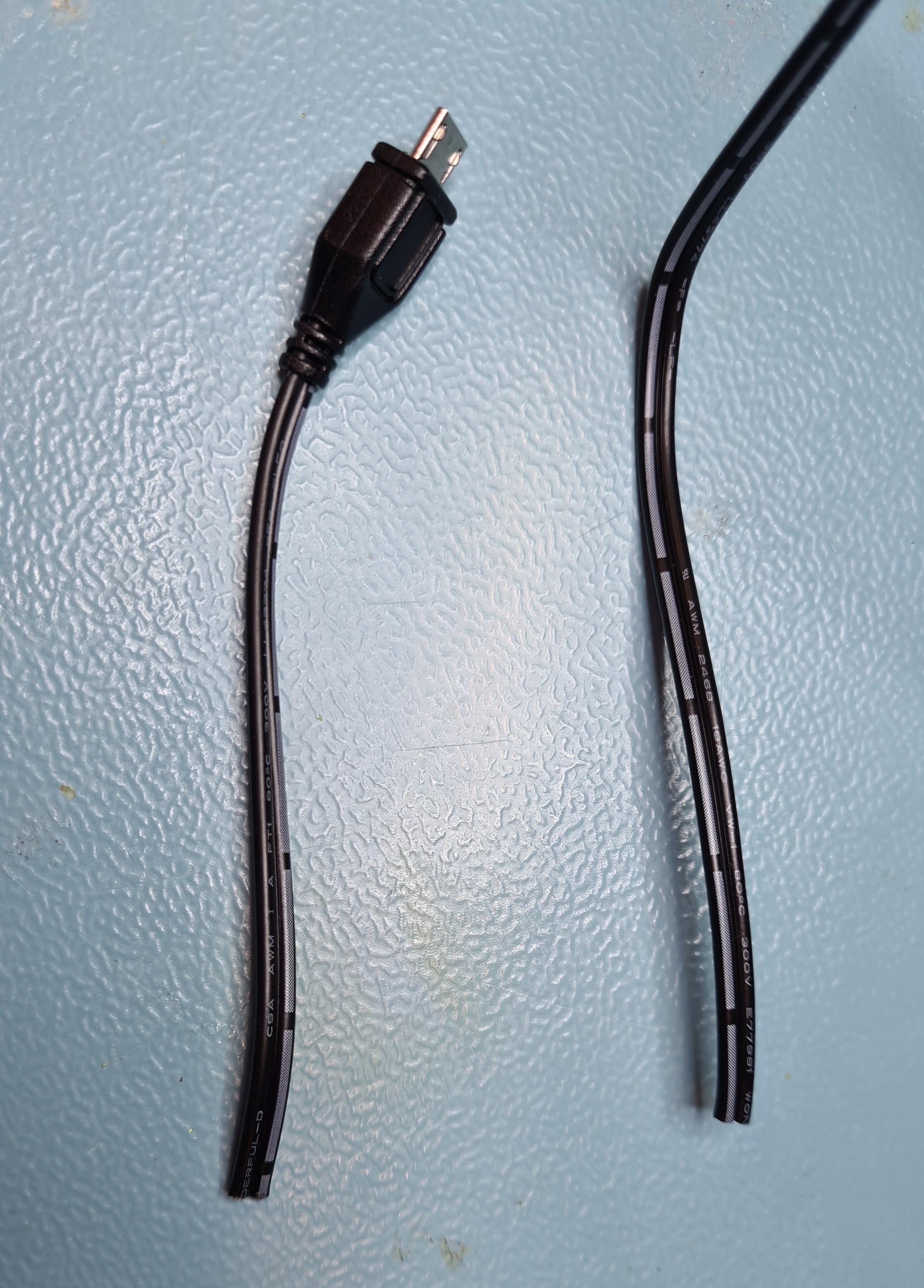
Carefully separate the two cables using a craft knife on the USB plug cable for approximately 3cm and strip both wires using a wire stripper. Check which wire is positive and negative. On this official Raspberry Pi power supply cable, the wire with long lines printed on is the negative wire.
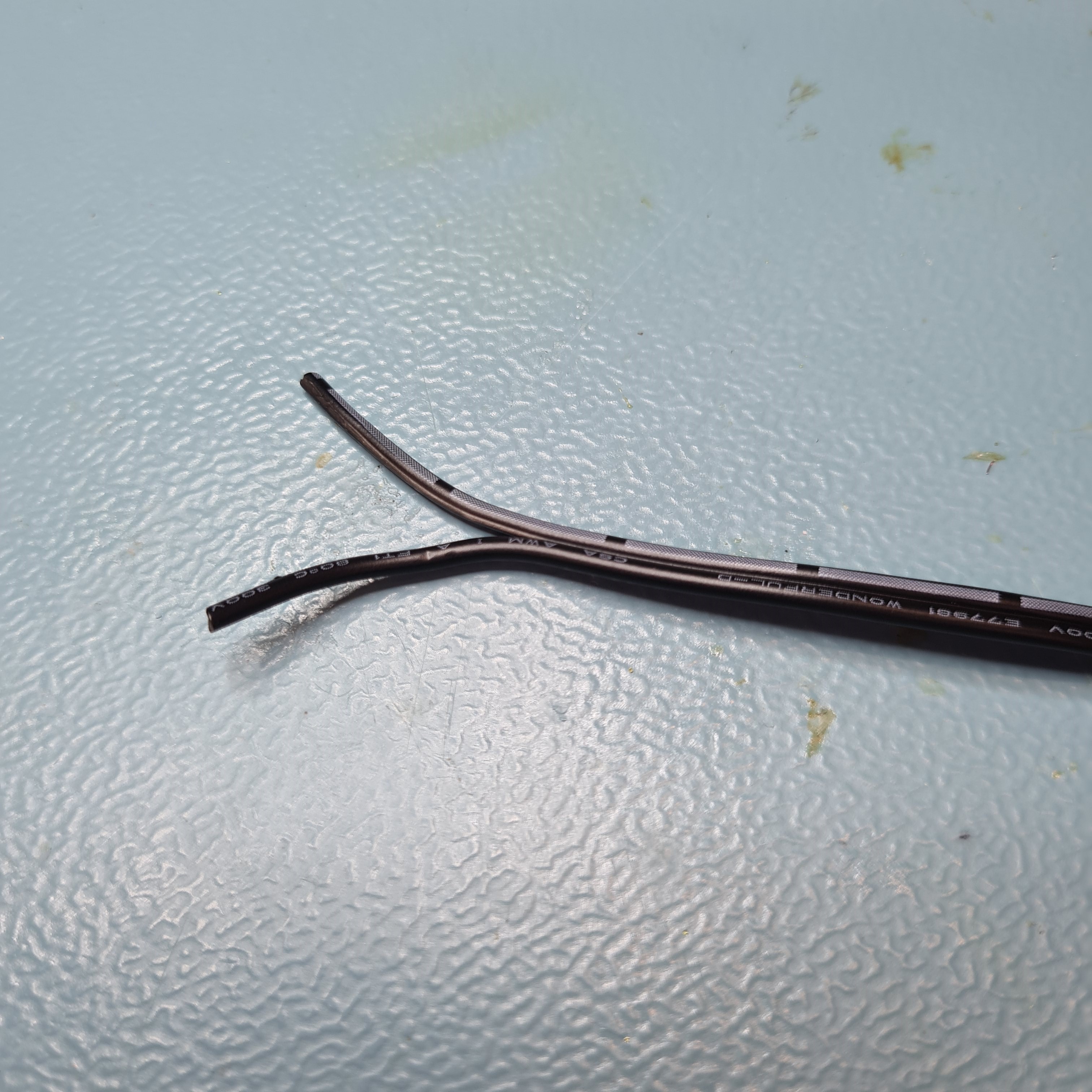
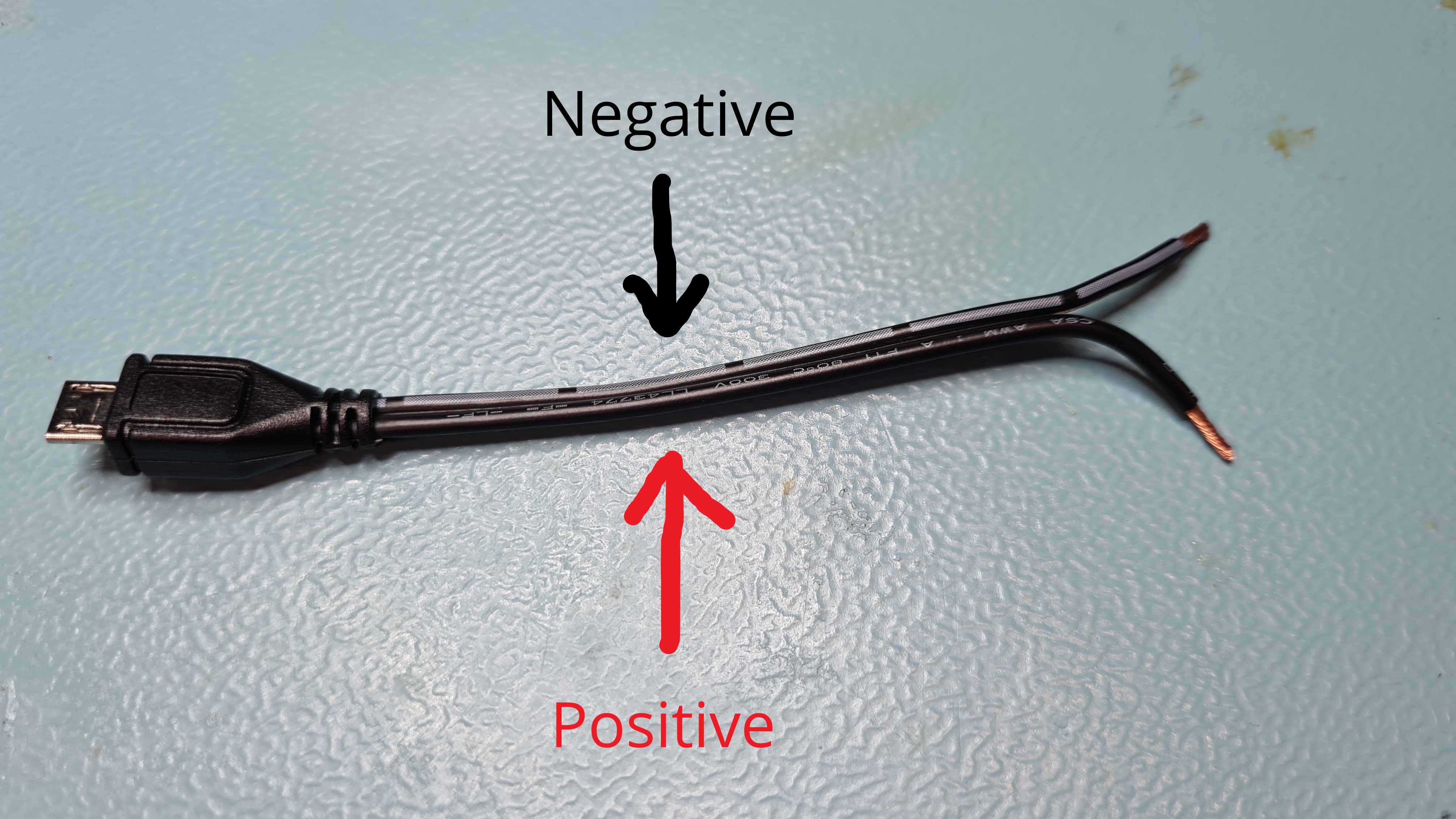

Cut a 20cm length of red 4A instrument wire and black 4A instrument wire using wire cutters. Strip one end using a wire stripper. Wrap the red wire around the positive wire of the Raspberry Pi power supply cable. Solder in place with a soldering iron and solder.
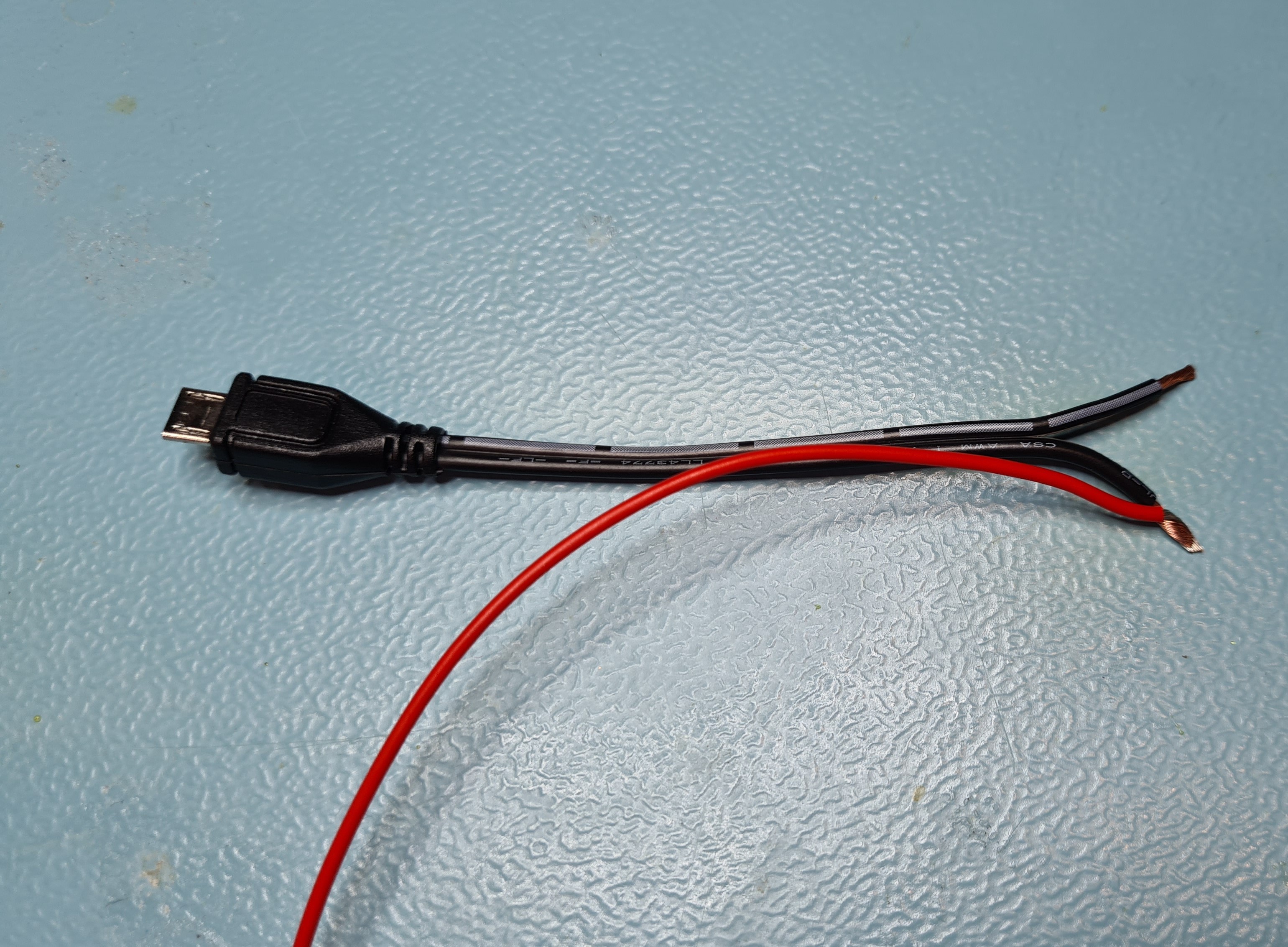
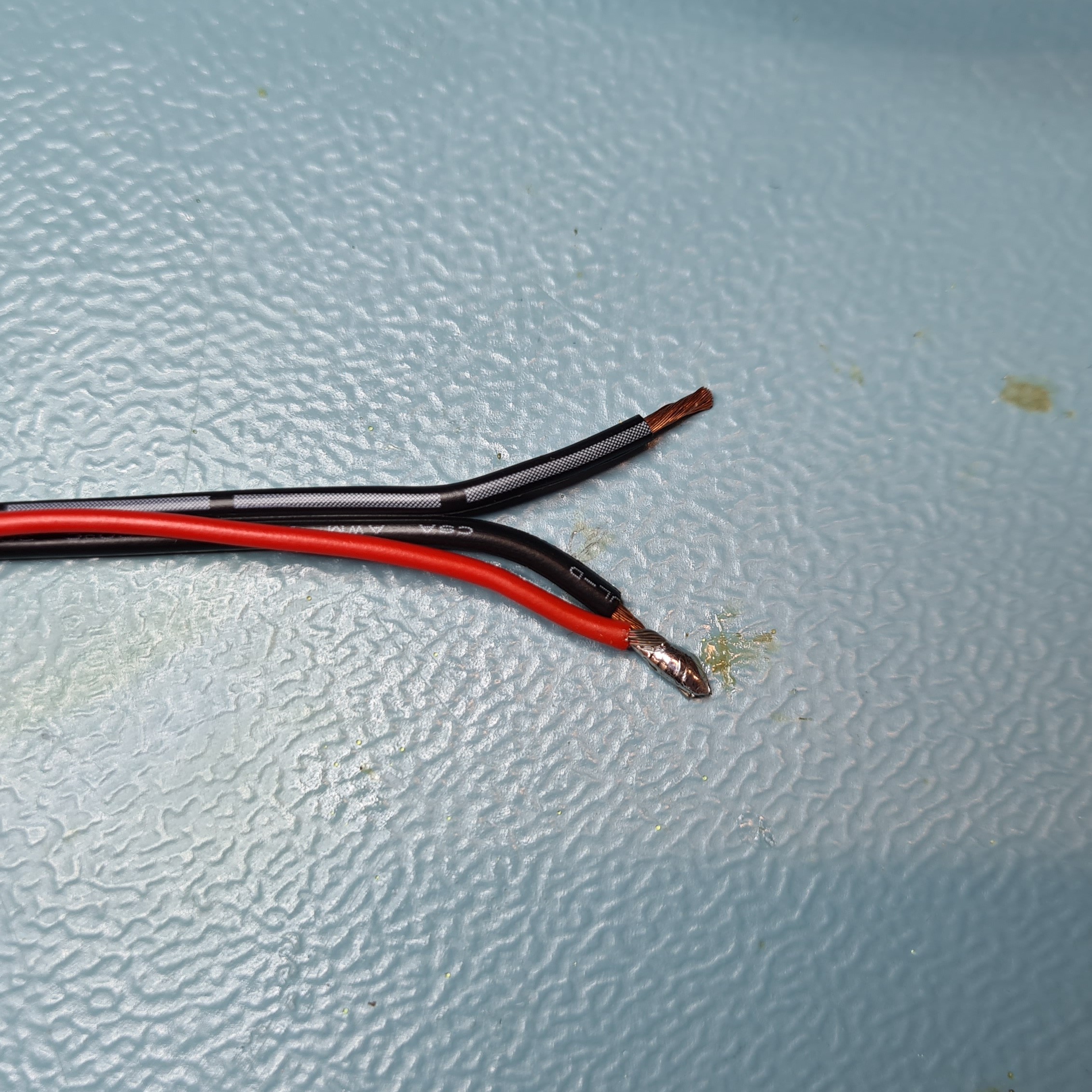

Repeat for the black 4A instrument wire on the negative wire of the Raspberry Pi power supply cable.
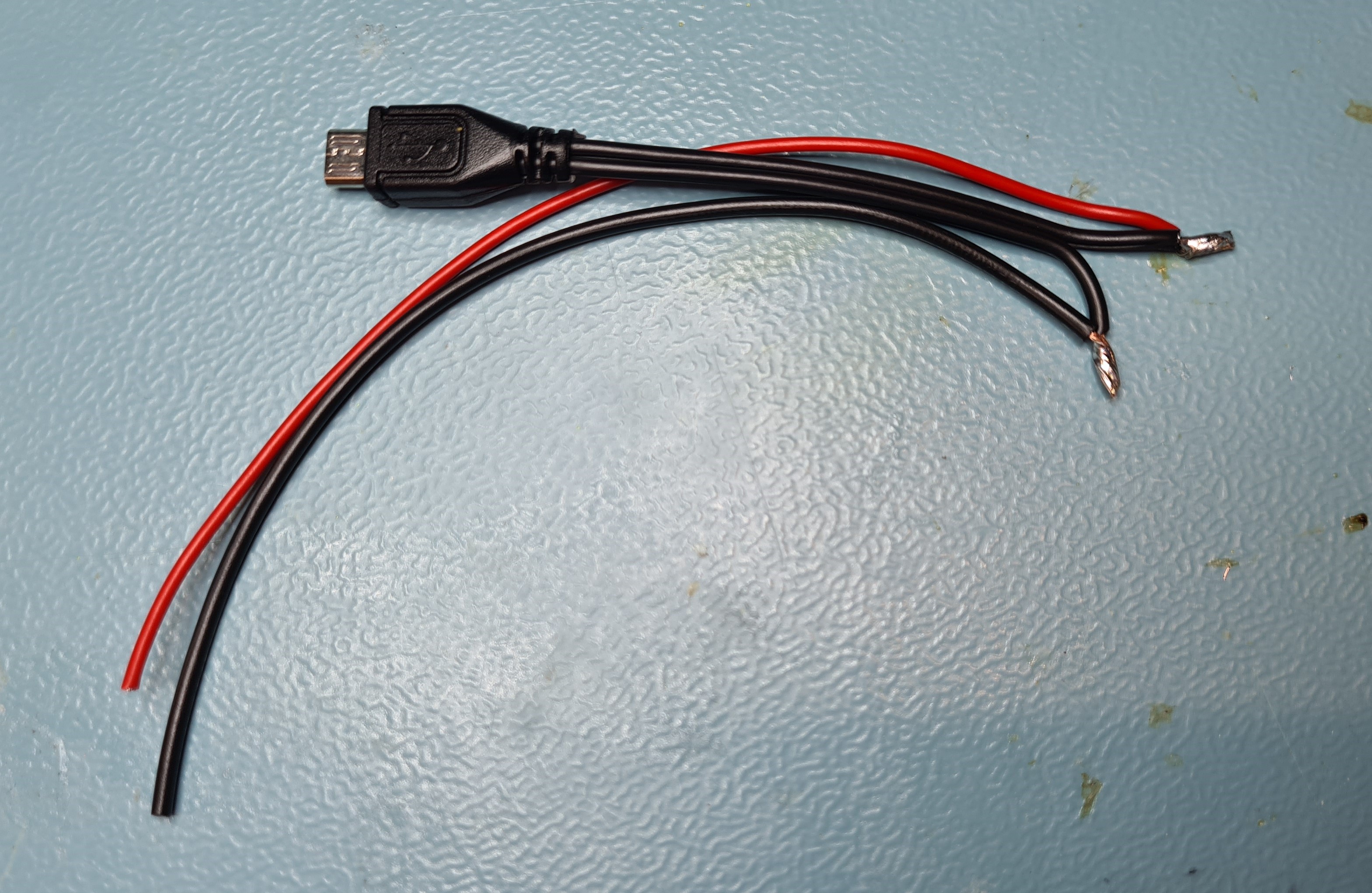
Cut two 4.8mm heat shrink tubes approximately 3cm long. Cut one 6.4mm heat shrink tube approximately 6cm long.
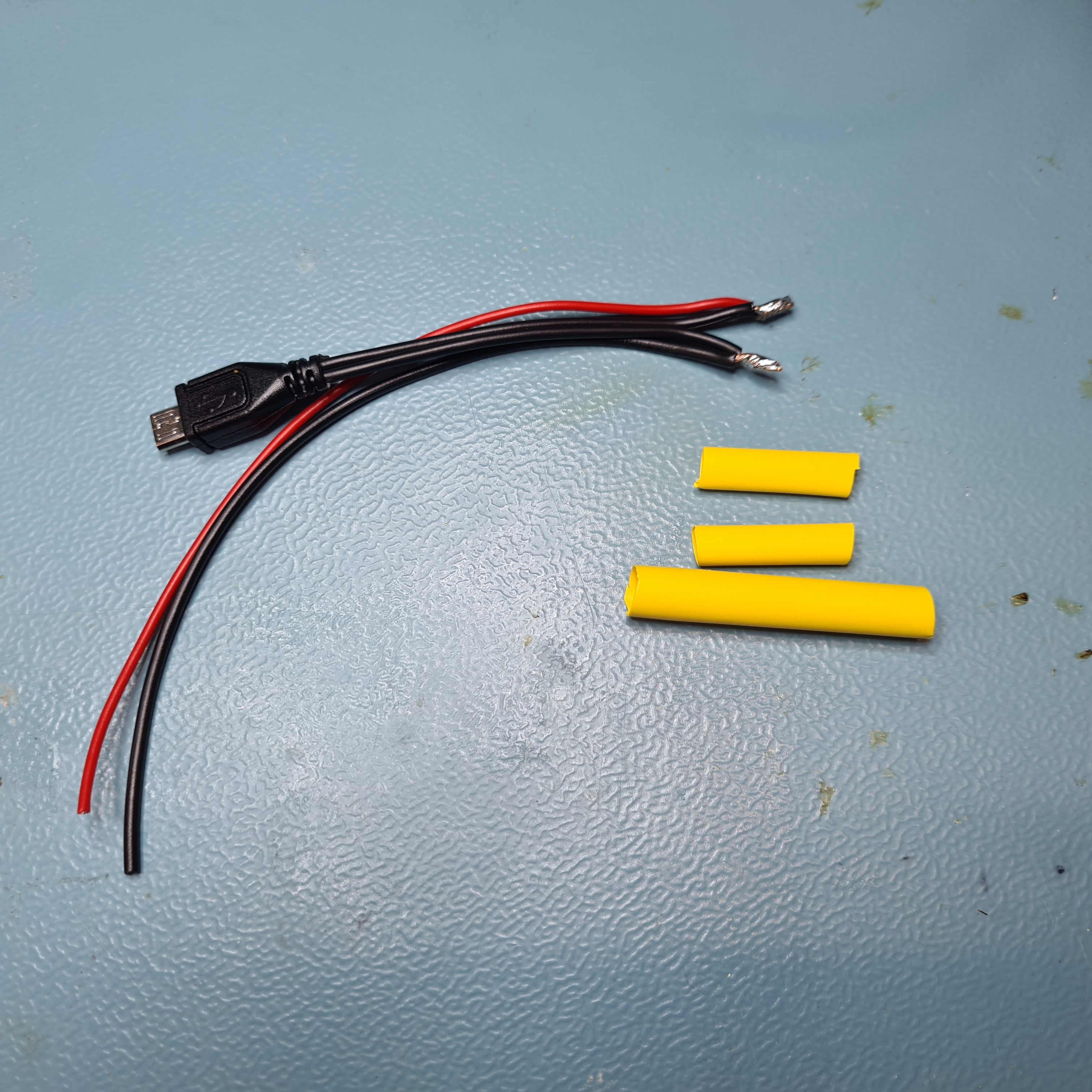
Carefully separate the two cables using a craft knife on the longer end of the Raspberry Pi power supply cable for approximately 5cm and strip both wires using a wire stripper. Push the longer 6.4mm heat shrink tube over both wires and the two shorter 4.8mm heat shrink tubes over each of the wires.
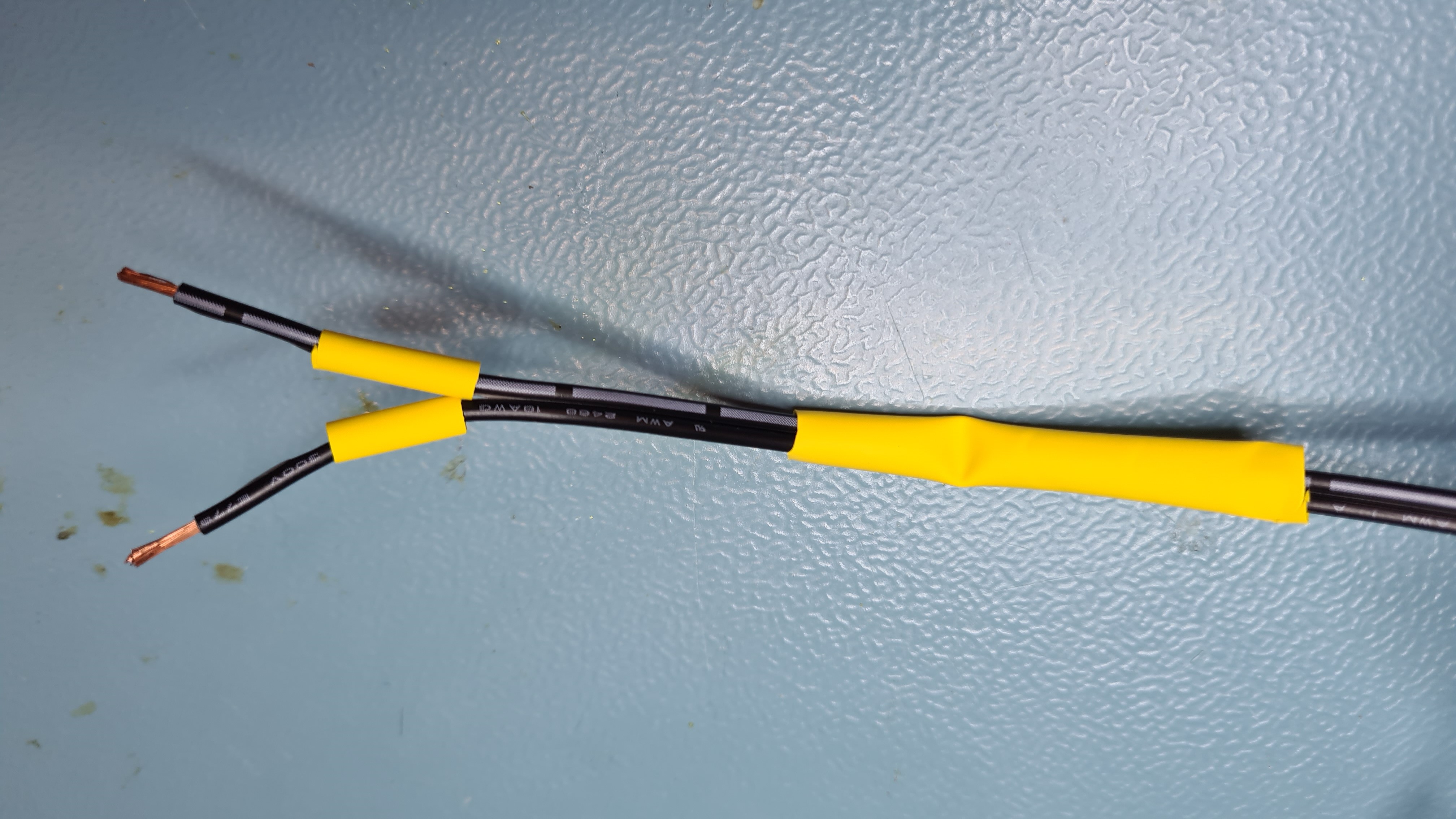
Wrap the negative wire from the longer cable with the already soldered negative wire from the USB end. Solder in place with a soldering iron and solder.
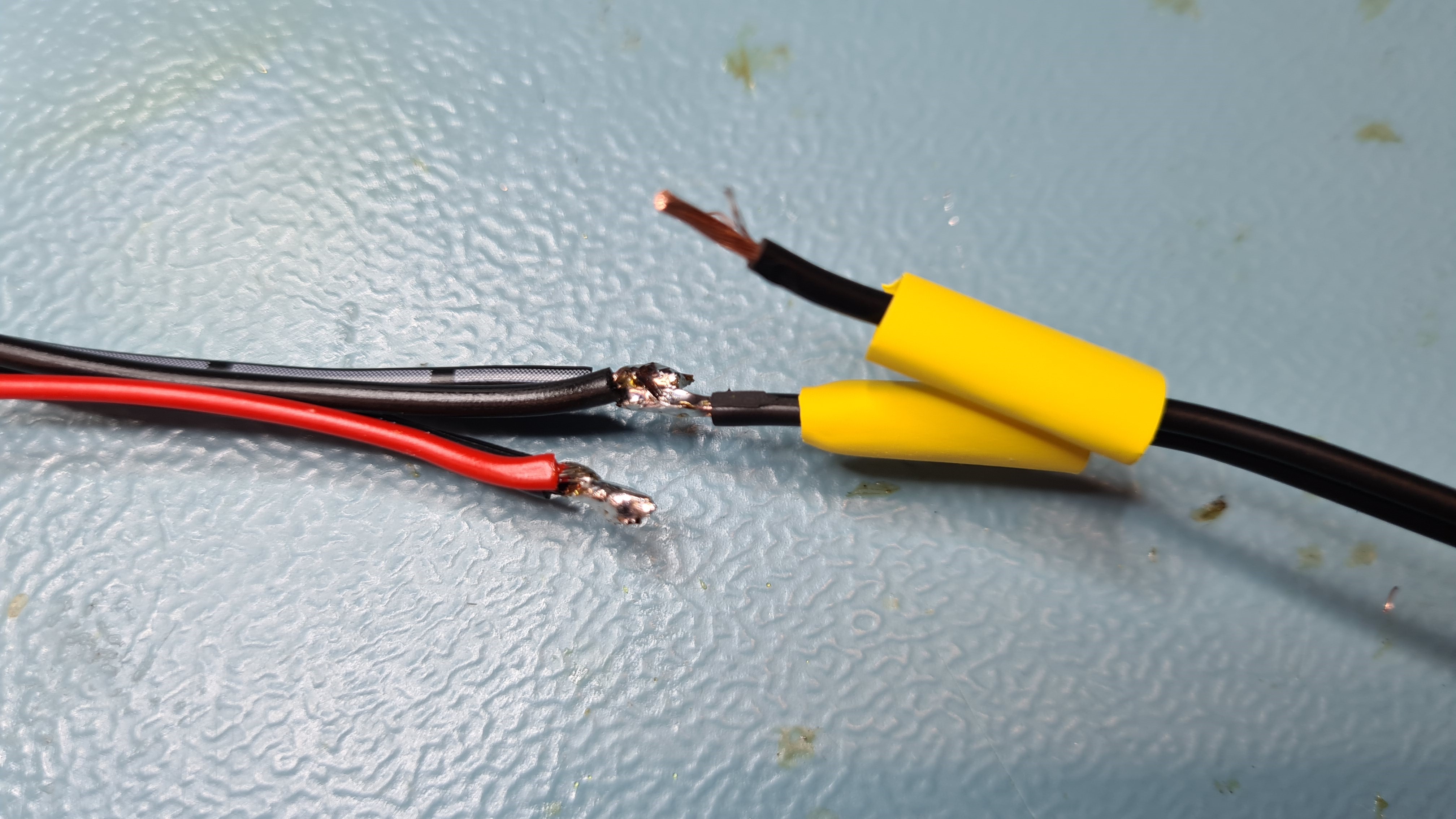
Repeat for the positive wire.
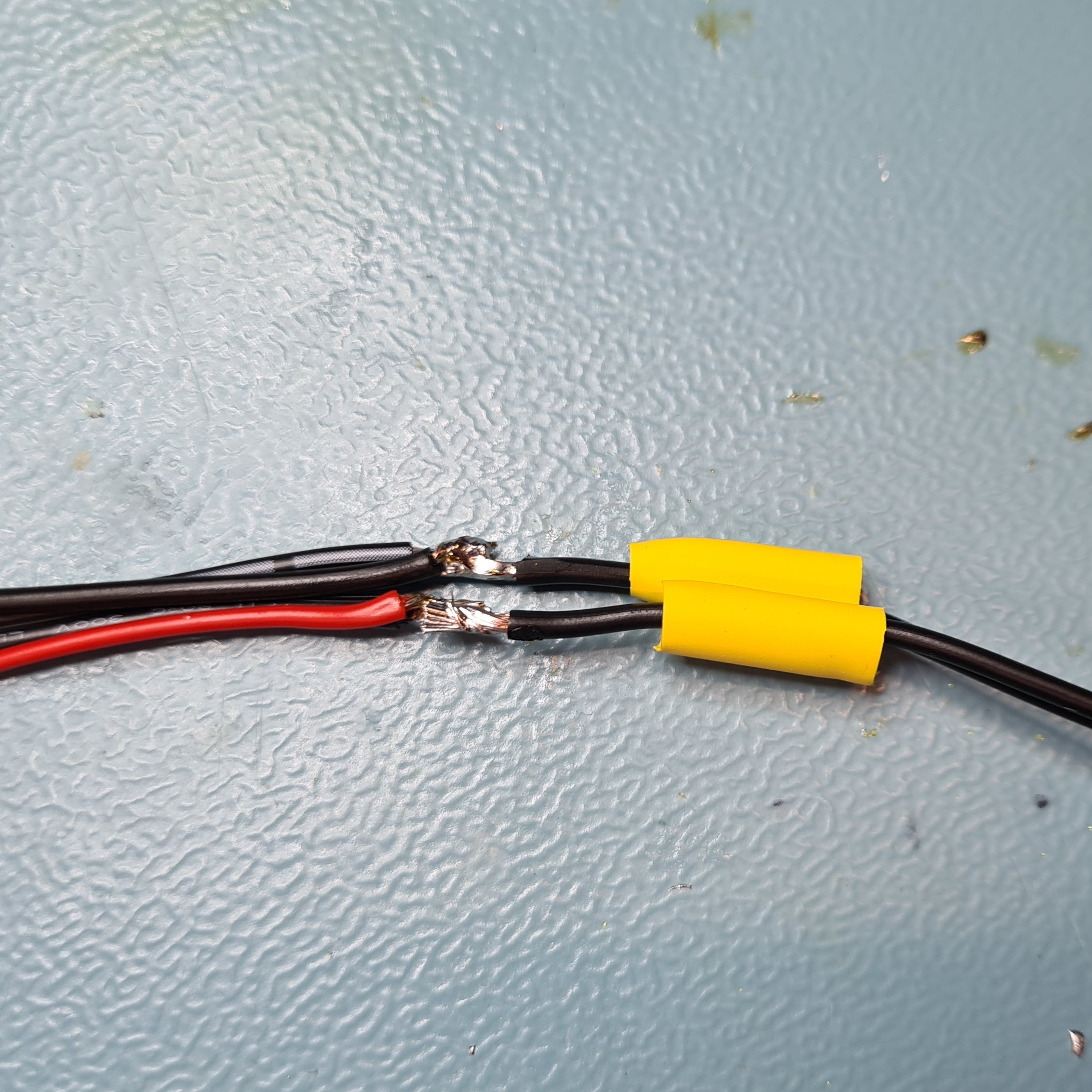
Move the two 4.8mm heat shrink tubes over the joints and heat in place using a heat gun or soldering iron.
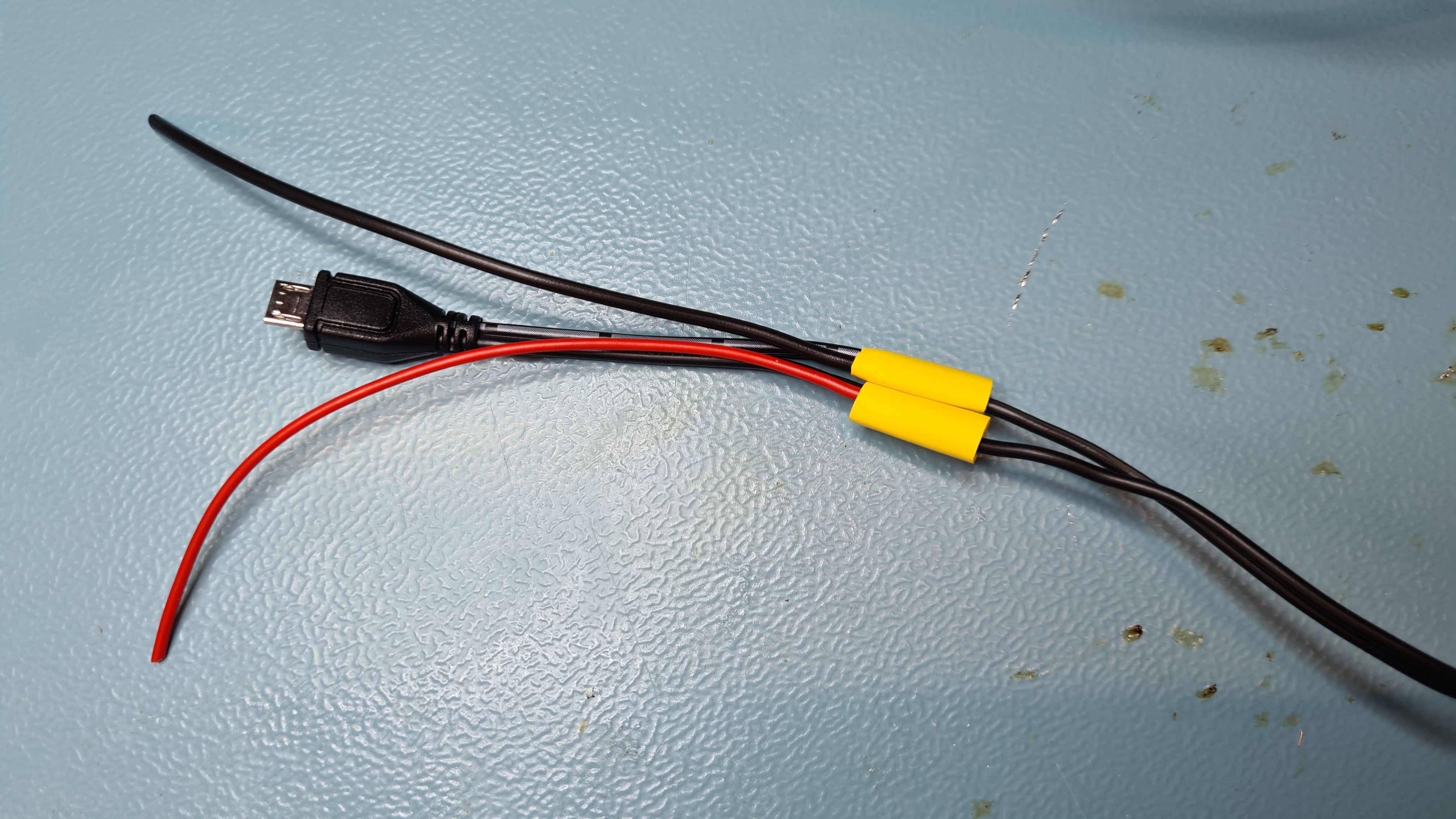
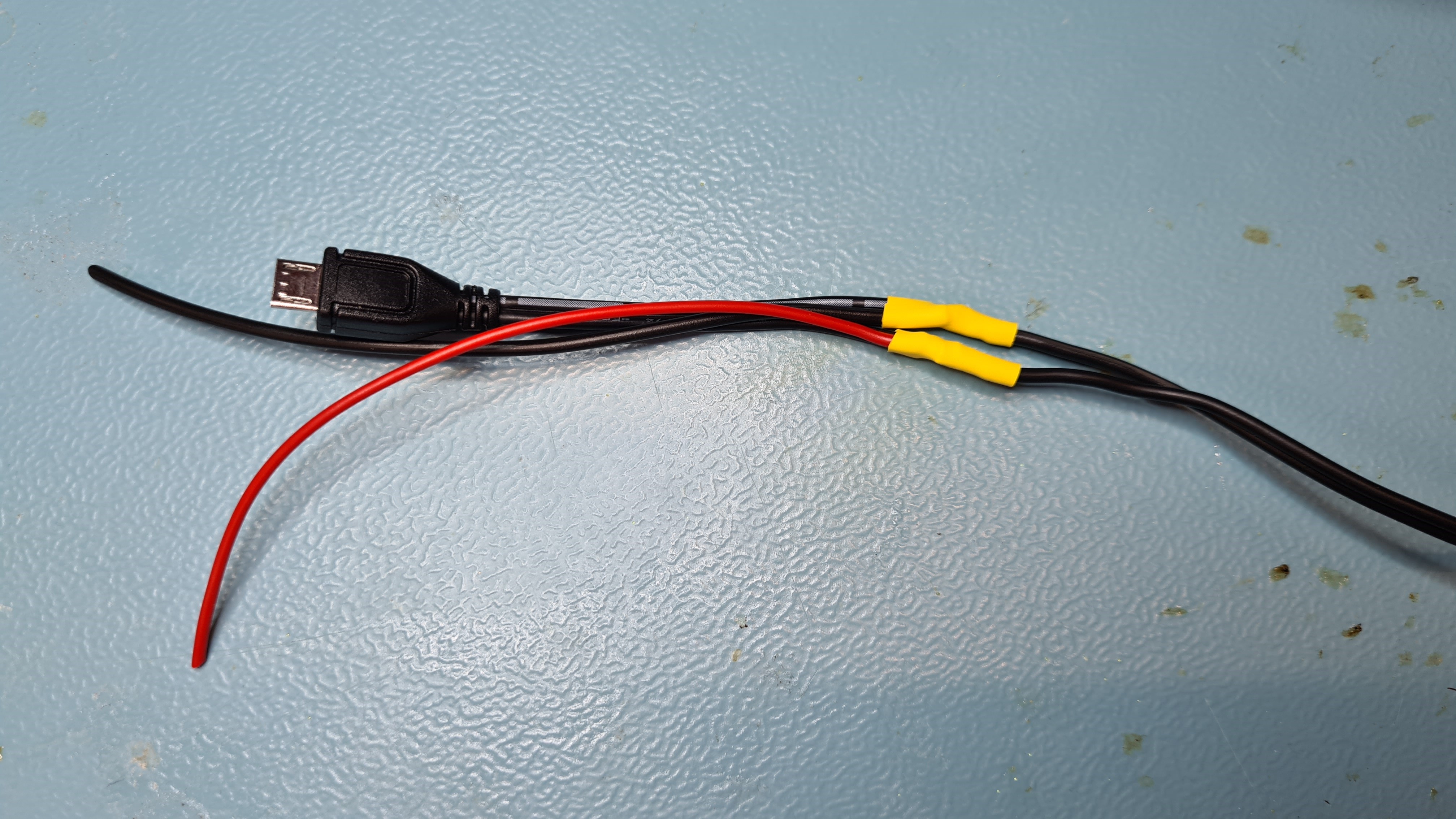

Move the 6.4mm heat shrink tube over both joints and heat in place using a heat gun or soldering iron.
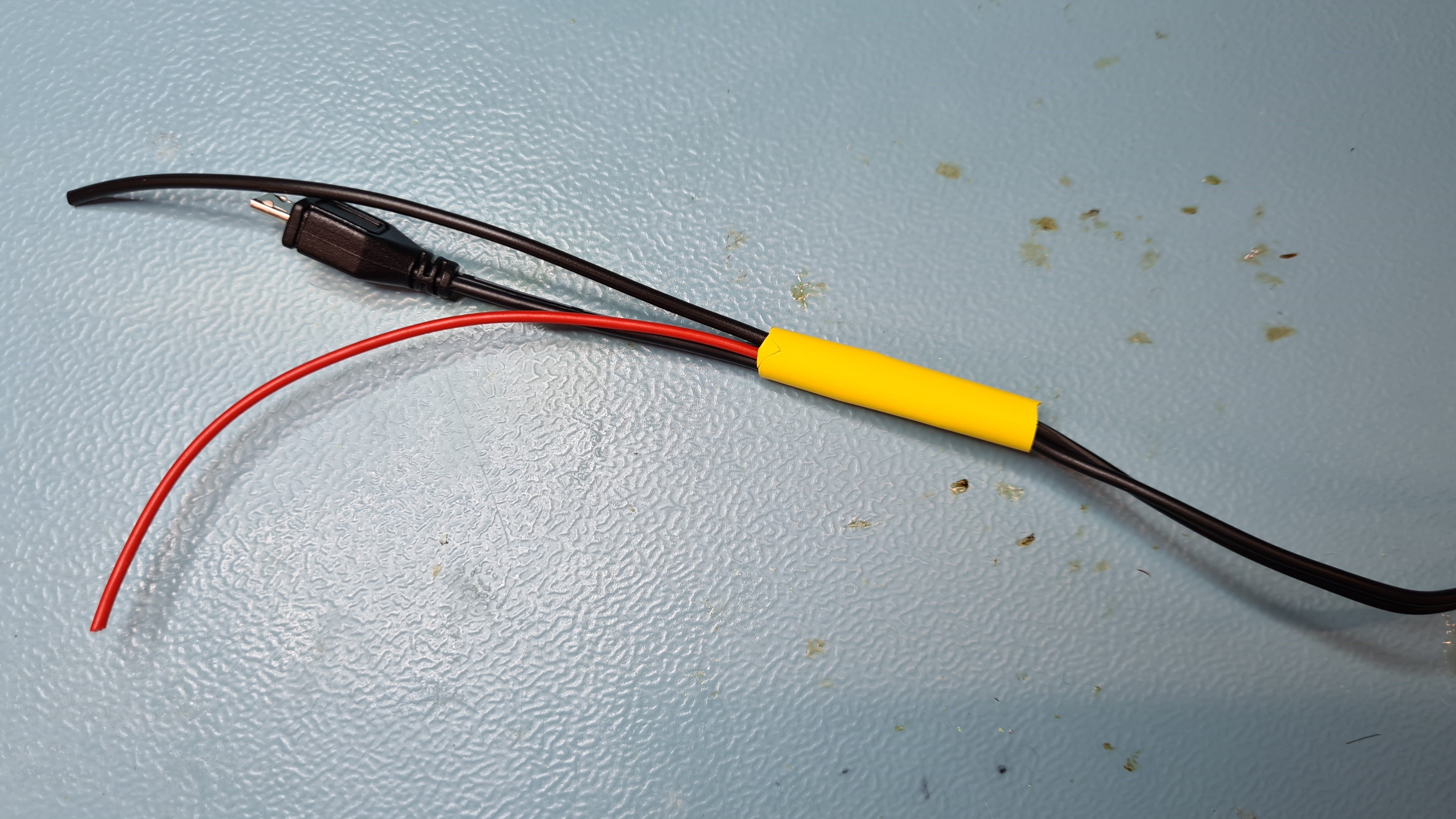
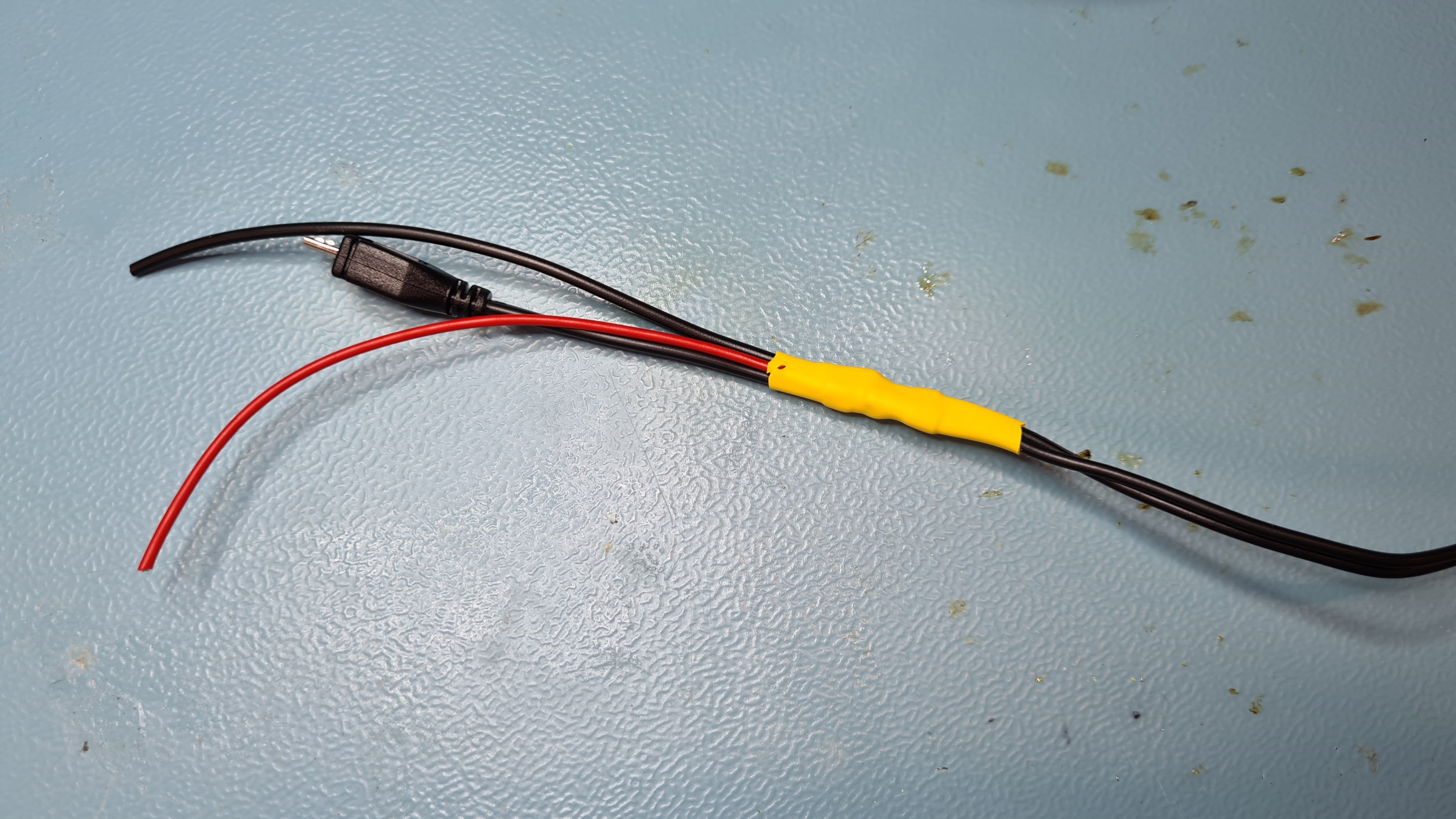

You can then attach the connector of your choice to connect to the Sangaboard.
